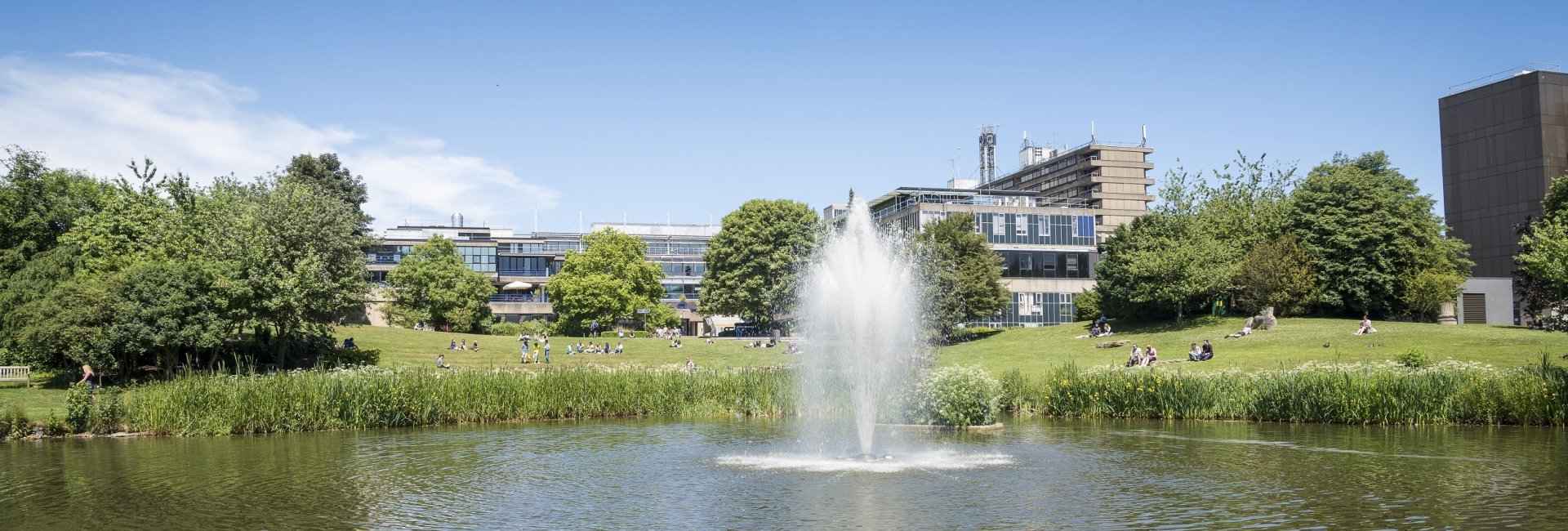University of Bath - Undergraduate Open Day
13 Jun 2025, 09:00
Bath, Bath & North East Somerset

Specialise in aerospace design, performance, analysis and systems. Develop the engineering skills for a career in the aerospace industry.
In your first two years of study, you’ll focus on learning the core mechanical engineering principles and the role of a professional engineer. You’ll explore how to incorporate design into the science, manufacturing and management elements of engineering so that you can build, analyse and test a product.
Building on this, you’ll go on to specialise by studying areas including aerodynamics, stability and control, propulsion, structures and performance. To develop a full understanding of aircraft from design to manufacture, you’ll work with professional engineers from an aerospace manufacturer and take a flight test course at a local airfield.
At Bath, we want to make sure you have the transferable skills engineers need in industry. You’ll develop complex problem solving and critical thinking skills as well as professional behaviours. You’ll explore how what you do as an engineer can impact the world around us and consider the ethical and environmental responsibilities this involves.
Our course focuses on giving you opportunities to apply what you’ve learnt through practical project work. You’ll work on a group project to design a new aircraft to a specification given by industry or for entry into a competition such as the annual Unmanned Aircraft Systems Challenge. In your final year, you’ll choose from a range of specialist units and complete an individual research project that could be based on simulation, experimentation or design.
You can choose to move between any of our BEng and MEng courses up to the end of your second year. This empowers you to take your degree in a direction that best suits your ambitions.

Learn what it's like to study at University of Bath. From key stats to campus highlights, open days, and more - find everything you need to know here.
The following entry points are available for this course:
GCSE English Language or Literature grade 4 or C (or equivalent from English language category C)
GCSE grades are an important part of selection for this course and we typically expect students to have a good number of GCSEs at grade 7-9 or A-A*. Your GCSE grades in Mathematics and Physics are particularly important and we typically expect grade 8-9 in at least one of these subjects.
Your GCSE grades will be carefully considered as part of our contextual admissions process and depending on your circumstances, we may be able to consider you with GCSE grades of mostly 6 or B.
This section shows the range of grades students were previously accepted with - learn more. It is designed to support your research but does not guarantee whether you will or won't get a place. Admissions teams consider various factors, including interviews, subject requirements, and entrance tests. Check all course entry requirements for eligibility.
Students aged 17/18 who applied to this course were offered a place.
See how students with your grades have been accepted onto this course in the past.
Operated by the Office for Students
Employment after 15 months (Most common jobs)
Go onto work and study
The number of student respondents and response rates can be important in interpreting the data – it is important to note your experience may be different from theirs. This data will be based on the subject area rather than the specific course. Read more about this data on the Discover Uni website.
| Location | Fee | Year |
|---|---|---|
| England | £9250 | Year 1 |
| Northern Ireland | £9250 | Year 1 |
| Scotland | £9250 | Year 1 |
| Wales | £9250 | Year 1 |
| Channel Islands | £9250 | Year 1 |
| Republic of Ireland | £9250 | Year 1 |
Tuition fee status depends on a number of criteria and varies according to where in the UK you will study. For further guidance on the criteria for home or overseas tuition fees, please refer to the UKCISA website.
Tuition fees can be found on our web pages and are liable to increase annually. UK and Islands fees are regulated by the UK government and are subject to parliamentary approval.
For information on tuition fees visit our web pages: http://www.bath.ac.uk/topics/tuition-fees/
For information about our scholarships and bursaries visit:
https://www.bath.ac.uk/topics/undergraduate-scholarships-bursaries-and-other-funding/
Claverton Down
Bath
BA2 7AY
Visit our website Visit our course page
Email:admissions@bath.ac.uk
Phone:01225 383019